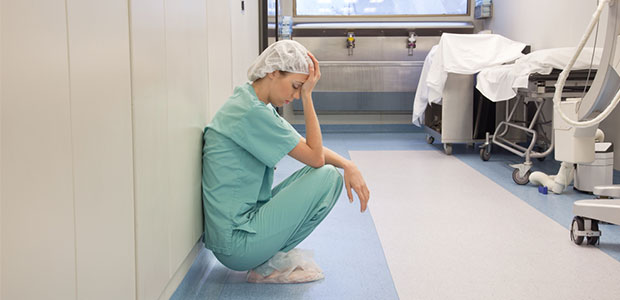
Adult Sleep Deprivation is on the Rise, Especially for Those in Safety and Health Industries
One recent report analyzed American adult sleeping patterns from 2010 to 2018, and the results showed that Americans are losing sleep on average. This trend was particularly prevalent for professionals in health care and law enforcement, for example.
Americans have reportedly been getting less and less sleep since the 1980s, and employees in some industries are more affected than others. A “good night’s sleep” is considered as seven hours of sleep or more. The reality is, most Americans are getting six hours or less, namely because of stress and pre-bedtime activity.
While Americans in general are sleep deprived, the very people who work to keep us healthy and safe seem to be hit the hardest. Police and health care workers, along with those in the transportation field like truck drivers, are seeing notable changes in sleep schedules.
A study from researchers from Ball State University in Muncie, Ind. analyzed data from the National Health Interview Survey. It looked at self-reports of sleep duration among 15,000 adults working in different occupations from 2010 to 2018. Researchers found that the prevalence of inadequate sleep (less than seven hours) went from 30.9 percent to 35.6 percent in those eight years.
For many police officers and health care workers, around half of respondents reported getting an average of five or six hours of sleep.
The research did not focus on the potential causes of why sleep time is lessening. However, researchers have speculations. Stress seems to be the biggest cause, and it’s on the rise among Americans.
The average American is stressed about a number of things: jobs, deadlines, and family life, to name a few. Plus, the lack of exercise in Americans’ routines as well as the prevalence of unhealthy food contributes to this. However, professionals in the safety and health industries are often unable to rest and mentally decompress. Police officers and health care workers deal first-hand with crime, life-and-death situations, dangerous environments, and unconventional hours.
One former police officer and 25-year veteran of the Ball State University police department can attest that work-related stress interferes with police-officers’ lives every day.
“I don't think it makes a difference whether they're a patrol officer or a detective; we certainly see some of the worst things that a person can imagine in this profession,” said Detective Lt. John Foster.
Then, when Foster goes to bed at night and attempts to get some rest, he finds it difficult to shut off his brain.
"It just replays in your mind over and over again,” he says. “I don't think there is any way for me to forget some of the things that I have seen.”
According to the NPR article that recounts Foster’s account, he reflects on moments he’s witnessed, including suicides and emotional interactions with crime victims. He feels saddened for them, and he often wonders what he could have done differently to have helped a situation have a better outcome.
For health care workers, stress interferes with sleep just as much. Dealing with individuals who are very ill and coping with near-death experiences can affect a person’s sleep schedule. And for doctors, being on call constantly makes it difficult to fully rest and detach from work pressures. A reported 45 percent of these workers get less than seven hours of sleep at night.
It is worrisome that the very people who work to protect the community are getting the worst sleep. However, general sleep deprivation among Americans has some widespread affects as well. Those who routinely get less than seven hours of sleep are at increased risk for a number of severe physical and mental problems, according to Jagdish Khubchandani—professor of health science at Ball State University who headed the study.
Sleepless nights are linked to risk of obesity, heart disease, stroke and diabetes, and mental health problems like anxiety, unstable moods, and even thoughts of suicide.
Most Americans have an inability to “turn their brains off” at night due to their increasingly busy lives of working long hours, extracurricular activities, lives as part of families with kids, and technology.
Yes, technology. Our society is interconnected, always on, and filled with screens and blue light that make it difficult for the brain to shut down. Because society is so engaged every hour of the day, many are not devoting enough time to sleep or getting in healthy bedtime routines to train their bodies.
However, Khubchandani provides notes some helpful lifestyle changes that, when prioritized routinely, can really help people sleep better. As simple as they sound, things like a healthy diet, routine exercise, meditation, and limited screen time before bed can help individuals deal with stress and sleep. Therapists use cognitive behavioral therapy to help patients develop routines and behaviors to help them get to sleep and stay asleep. Humans are creatures of habit, and sometimes it takes external help for us to break these habits.
Psychologist Todd Arnedt from the University of Michigan says that “a wind down period before bedtime” should be done in dim light conditions, without phones or other electronics, and in environments that are quiet and sedentary.
Fixing sleep deprivation among Americans is caused by a number of habits, environments, and cultural elements. However, like most things, starting small and working towards a greater, future goal is the best way to get Americans to sleep more, one Z at a time.